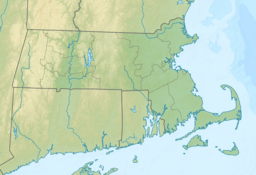Barrier Dunes facts for kids
Quick facts for kids Barrier Dunes |
|
|---|---|
| Highest point | |
| Elevation | 2 ft (0.61 m) |
| Geography | |
| Location | Cape Cod, Massachusetts |
| Topo map | USGS Wellfleet |
Barrier Dunes is a term for a type of sand dune system. These dunes are found in Barnstable County, Massachusetts. The specific "Barrier Dunes" mentioned here are located on Monomoy Island. This island is about 2.3 miles (3.7 km) north-northeast of Monomoy Point. It is part of the Town of Chatham.
Contents
What Are Barrier Dunes?
Barrier dunes are natural piles of sand. They are formed by the wind. These dunes often grow along coastlines. They act like a natural wall. This wall protects the land behind them from ocean storms and waves.
Why Are They Called "Barrier" Dunes?
They get their name because they create a barrier. This barrier helps to protect the land. It stops strong winds and high tides from reaching inland areas. They are a very important part of coastal ecosystems.
Where Are Barrier Dunes Found?
Barrier dunes are common along sandy coastlines worldwide. The "Barrier Dunes" mentioned in this article are on Monomoy Island. This island is off the coast of Cape Cod in Massachusetts. Cape Cod is famous for its beautiful beaches and unique natural areas.
Exploring Monomoy Island
Monomoy Island is a special place. It is a long, narrow island. It is mostly made of sand. The island is part of the Monomoy National Wildlife Refuge. This refuge protects many types of birds and other wildlife. You can find seals, shorebirds, and many other animals here. The island is also home to many different plants that can grow in sandy, salty conditions.
How Monomoy Island Changes
Monomoy Island is always changing. Wind and waves constantly reshape its sandy shores. This means the barrier dunes on the island also change over time. They grow, shrink, and move. This natural process is part of what makes coastal areas so dynamic.
Why Are Dunes Important?
Dunes play a huge role in protecting our coastlines. They absorb the energy from storm waves. This helps to prevent erosion. Erosion is when land is worn away by water or wind. Without dunes, coastal storms could cause much more damage to homes and habitats.
Home for Wildlife
Dunes are also important habitats. Many plants and animals live on or near them. Special grasses help to hold the sand in place. These grasses provide food and shelter for insects and small animals. Birds often nest in the quiet areas behind the dunes.
How Do Dunes Form?
Dunes start to form when sand blows inland from a beach. The sand gets caught by plants or other obstacles. As more sand piles up, a small mound forms. Over time, this mound grows into a dune. Plants like beach grass are very important. Their roots help to stabilize the sand. This stops the wind from blowing it all away.
Protecting Our Dunes
Because dunes are so important, it's vital to protect them. Many coastal areas have rules to keep dunes healthy. For example, people are often asked to stay on marked paths. Walking on dunes can damage the plants that hold the sand. This makes the dunes weaker and more likely to erode. Protecting dunes helps to protect our coastlines for the future.



